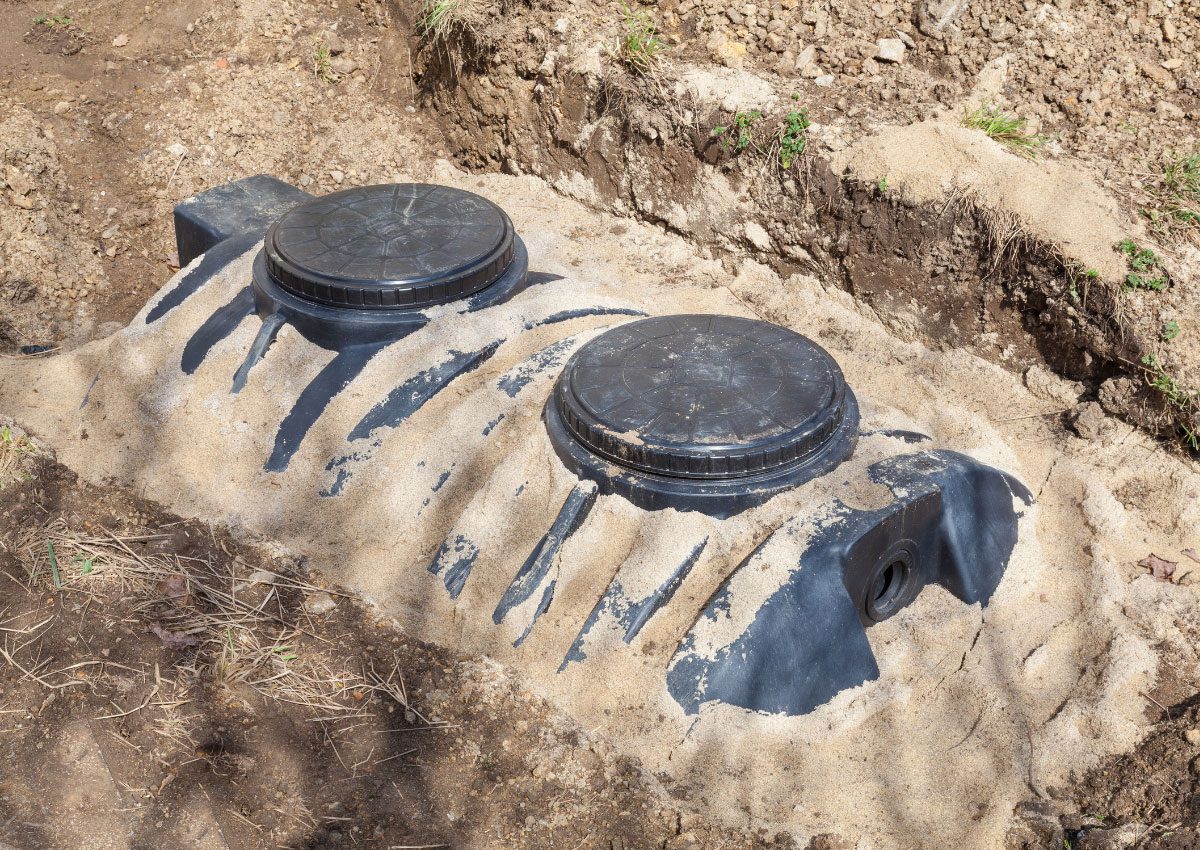
A well-functioning septic tank is essential for homeowners, but how long can you expect your septic tank to last? The answer is based on a number of factors, including the construction material, environmental factors, usage, and of course, proper maintenance. Read on to determine the potential lifespan of your septic tank, as well as how you may be able to extend its lifespan well into the future.
How Long Does a Septic Tank Last?
Many different factors go into determining the lifespan of a septic tank, from the tank’s material to the soil and water level. However, most septic specialists say that the average lifespan for a well-maintained system is anywhere from 20 to 40 years.
Factors that Determine a Septic Tank’s Lifespan
Tank Material
One of the major factors in determining how long your septic tank will last is the material it’s made from. The majority of septic tanks today are made of concrete, which typically lasts the longest, but some tanks are made of steel or fiberglass. The average lifespan of each material is:
-
Concrete
It’s not uncommon for a concrete septic tank to last 40 years or more. While you’ll typically pay more for a concrete tank, the investment is well worth it. Though concrete tanks are the most durable, however, it’s still important to have your septic tank inspected periodically to check for cracking or settling.
-
Fiberglass
This lightweight option is almost as durable as concrete, lasting around 30 years when properly maintained. That said, you will probably pay more to install this type of septic tank.
-
Steel
You can expect a steel septic tank to only last from 15 to 20 years at most. That’s because the metal can rust or corrode over time. Steel tanks are rarely installed today, but you may have an existing steel tank on your property. If so, it’s best to have it inspected regularly to avoid costly issues.
Soil Type
The acidity of the soil where your septic tank is installed will play a major part in how long the tank will last. Acidic soil, for example, can cause steel tanks to rust at a faster rate. It can also break down concrete over time. If you are unsure about the acidity of your soil, you may want to have it tested. Septic tanks in acidic soil should be inspected for corrosion regularly.
Water Table
The water table refers to the groundwater levels on your property. When the water table is higher, it slows down the process of wastewater, or effluent, from absorbing into the surrounding soil through the leach field. This could result in more frequent backups and eventually take a toll on the functionality of the septic tank itself.
Usage
Consider both how often the septic tank is used, as well as how it’s used. You can expect a septic tank that is only used by one or two people to last a bit longer than one that supports a family of five or six. In addition, how the tank is used will determine its lifespan. If your family uses septic safe toilet paper and avoids flushing wipes, feminine products, or other objects, the tank’s lifespan may be extended.
Extending the Life of Your Septic Tank
Unfortunately, you cannot change the acidity of your soil or the level of your groundwater, and if your septic tank has already been installed, you cannot change its material either. On the other hand, there are several things you can control that could greatly affect the lifespan of your septic tank and entire septic system.
-
Use a Bacteria-Based Product
Consider adding a bacteria-based product to your maintenance routine. Once bacteria is introduced to the tank itself, it goes right to work digesting waste, including fats, oils, and greases (or FOG). This helps to maintain the proper levels of wastewater inside the tank and will reduce the likelihood of clogs or backups in the drain pipe and leach field.
-
Follow Best Practices
Septic systems do not function in the same way as city wastewater systems, and certain guidelines should be followed to keep the system working properly. Flush only wastewater and septic-safe toilet paper, and avoid dumping food scraps, grease, or chemicals down your drains. This will drastically reduce the strain on your septic system and could extend its lifespan well into the future.
-
Perform Regular Inspections
If you want to extend the life of your septic tank, you need to prioritize regular inspections and pumpings. While it’s never enjoyable to learn of cracks or rust in your tank, it’s best to catch these issues early, while it’s still possible to repair the tank, rather than replace it. In addition to regularly scheduled visits from your septic technician, watch for signs like foul odors, pooling water in your yard, or slow drains. If you notice any of these, reach out to your technician.
How Long Will Your Septic Tank Last?
A concrete septic tank could last up to 40 years, but the answer truly rests on several factors. Some, like soil type and groundwater level, may not be in your control. Others, however, are based on how you and your family use the system. To extend the lifespan of your septic tank, be mindful of what you are flushing down your toilets and dumping down your drains. Be sure to schedule regular maintenance, including inspections and pumpings, and consider adding a bacteria-based product to your routine. The bacteria will fully digest waste in the tank and help it function properly for years to come.
